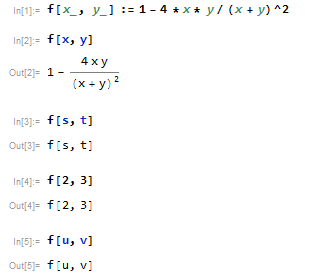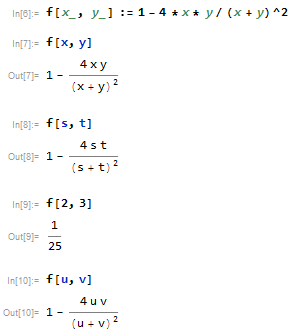I am seeing the following issue on Windows 7 x64, with the new Mma 11:
I define the simple function below, and evaluate it. The first time is fine, but after that the kernel seems to have forgotten that I defined f:
Next, I simply re-evaluate the function definition and the next four lines, and I see this:
which is as it should be. Note that for each of the above, I proceeded by pressing Shift-Enter on the five Input lines, one after the other. If I save the notebook and simply choose "Evaluate Notebook" from the menu, things look fine. However, if I then manually ask for an evaluation of f in a new Input line and press Shift-Enter, I again get an unevaluated f back.
By now I have spent way too much time on this nonsense, but the bottom line seems to be that I need to evaluate my function definitions twice for them to "stick". Clearly, that's not the way this should work...
What is going on here? Can anyone confirm this behavior?



$HistoryLengthis set to 10. $\endgroup$